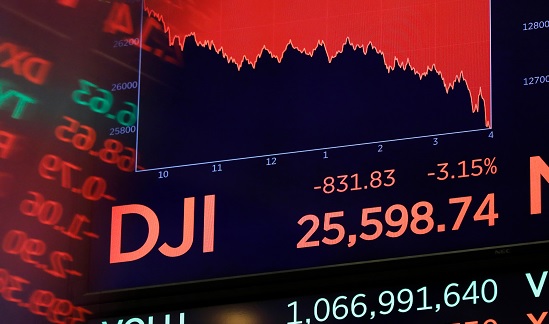SINGAPORE–Asia’s petrochemical shares slumped on Thursday, tracking steep losses in regional bourses following a heavy sell-off in US equities overnight amid fresh concerns over slower global growth.
At 10:20 Singapore time (08:20 GMT), Japan’s Asahi Kasei Corp was down 3.69%, Mitsui Chemicals declined 3.03% and JXTG Holdings fell by 5.27%, as the Japanese benchmark Nikkei 225 index slumped by 3.93% to 22,581.37.
In South Korea, SK Innovation fell by 3.24% and LG Chem was down by 2.69% as the KOSPI Index declined by 2.66% at 2.169.44.
In Hong Kong, Sinopec Shanghai Petrochemical fell by 7.50% and PetroChina was 4.82% lower, as the Hang Seng Index fell by 3.43% to 25,294.22.
In Taiwan, Formosa Petrochemical Corp plunged by 7.41%, while LCY Chemical Corp dipped 0.38%.
In southeast Asia, PETRONAS Chemicals Group was down by 1.07% in Malaysia, while Singapore-listed oleochemicals maker Wilmar International was 1.59% lower.
On Wednesday, the US’ Dow Jones Industrial Average closed 3.15% lower at 25,598.74; the S&P 500 sank 3.29% to 2,785.68; while the Nasdaq Composite plummeted 4.08% to 7,422.05, its largest single-day sell-off since 24 June 2016.
Equity markets have been weighed by concerns over the global economy after the International Monetary Fund (IMF) earlier this week downgraded its 2018 global growth forecast to 3.7% from 3.9%.
Apart from rising trade protectionism starting to weigh on world growth, the IMF has assigned a 5% probability that emerging markets may suffer capital outflows of more than $100bn over four quarters from an escalation in trade tensions and a tightening in global financial conditions.
“The IMF no longer considers the risk of emerging market stress evolving from country-specific problems into a wider crisis across more countries a zero probability,” said Singapore-based DBS Group Research.
The IMF’s call for the world to de-escalate trade disputes is likely to be ignored by the US, DBS said.
Any discussion between the US and Chinese officials in Bali is likely to centre on America’s “unhappiness over the Chinese yuan’s depreciation, and not on trade,” it said, referring to the IMF and World Bank meetings currently taking place on the Indonesian island.
“China’s decision to lower, by a fourth time this year, its reserve requirement ratio by 100bps [basis points] over the weekend has been viewed as a defensive move to cushion its economy from the tariff war with America, which the IMF reckoned would hurt the China more than the US,” DBS added.

